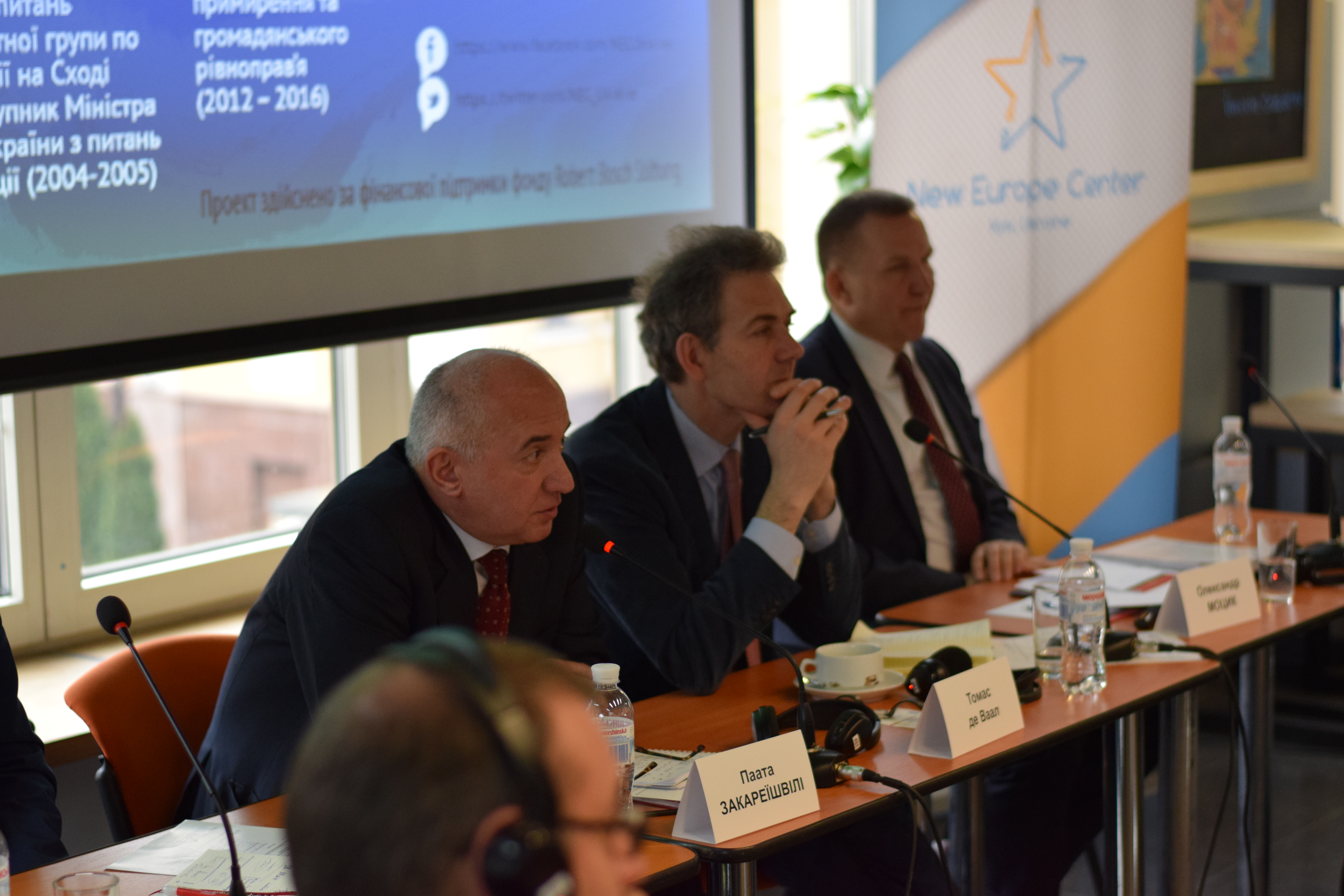24 квітня Центр «Нова Європа» спільно з Carnegie Europe провели публічну дискусію під назвою: «Як бути з непідконтрольними територіями: Україна, Молдова, Грузія?».
Під час дискусії були обговорені варіанти заходів, спрямовані на залучення та взаємодію з непідконтрольними територіями в таких аспектах як мобільність, торгівля та вища освіта. Дискусія базувалась на дослідженні, проведеному аналітиком центру Carnegie Europe Томасом де Ваалом у Грузії, Молдові та на Кіпрі.
Також спікерами заходу були колишній міністр Грузії примирення та громадянського рівноправ’я Паата Закареішвілі та представник України в робочій підгрупі з політичних питань Тристоронньої контактної групи по врегулюванню ситуації на Сході України Олександр Моцик.
Пропонуємо до вашої уваги декілька тез спікерів, що пролунали під час дискусії.
Томас де Ваал
Усі конфлікти з непідконтрольними територіями різні, але мають декілька однакових вимірів:
- «Геополітичний елемент: ми бачили значну роль Росії у випадках Абхазії, Придністров’я та України. На Кіпрі Туреччина та Греція були основними геополітичними гравцями. А також є місцевий елемент, внутрішній».
- «Якщо ви не будете працювати на всіх цих рівнях, то не досягнете мирного врегулювання конфлікту».
- «Геополітичний рівень часто є заблокованим, Москва є дуже важливим фактором. Проте це не заважає зосередитись на місцевому рівні, оскільки тут можна досягти прогресу».
Паата Закареїшвілі
В Абхазії та Південній Осетії вже не поважають Росію, скоро так само станеться й у Криму та на окупованому Донбасі:
- «Потрібен час, щоб ейфорія зникла. І через цей час, я впевнений, Україна буде більш демократичною […] і готовою цих людей повернути. Принаймні, привернути їхні інтереси. У людей повинен бути вибір – де ми зараз знаходимось і де могли би бути».
Олександр Моцик
Кремль створив проблеми багатьом пострадянськім державам, які не йшли у фарватері його політики:
- «Всі ті країни, які не йшли у фарватері Росії, зразу ж отримали великі проблеми. Відновилася гаряча фаза війни у Грузії. Потім прийшла черга України, а прийшла вона тому, що Україна не погодилася з тиском Москви і заявила чітко через Майдан, що вона належить до Європи».
Більш детально з головними тезами спікерів можна ознайомитись тут
У дискусії, зокрема, взяли участь: Голова Спеціальної моніторингової місії ОБСЄ в Україні Ертугрул Апакан, Надзвичайний і Повноважний Посол Великої Британії в Україні Джудіт Гоф, радник міністра з питань тимчасово окупованих територій і внутрішньо переміщених осіб України Олександр Левченко.
Повний фотозвіт можна переглянути тут
Проект здійснено за фінансової підтримки фонду Robert Bosch Stiftung









